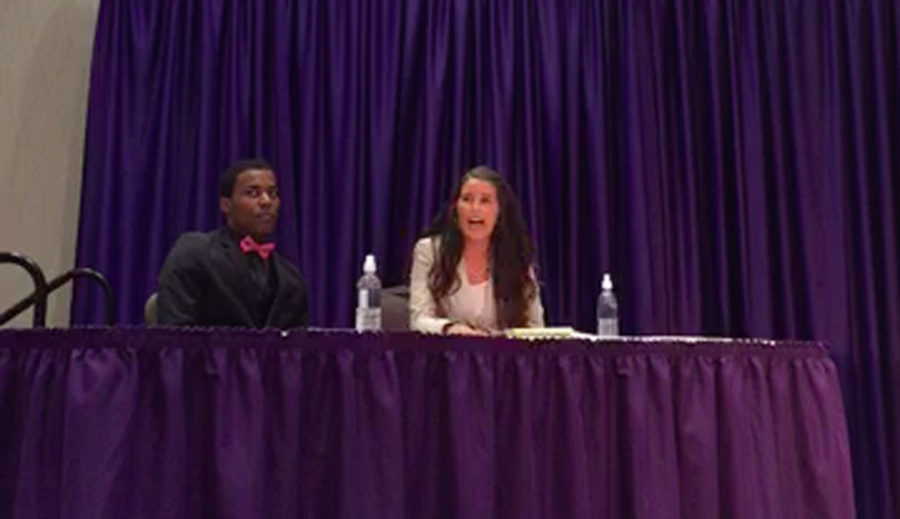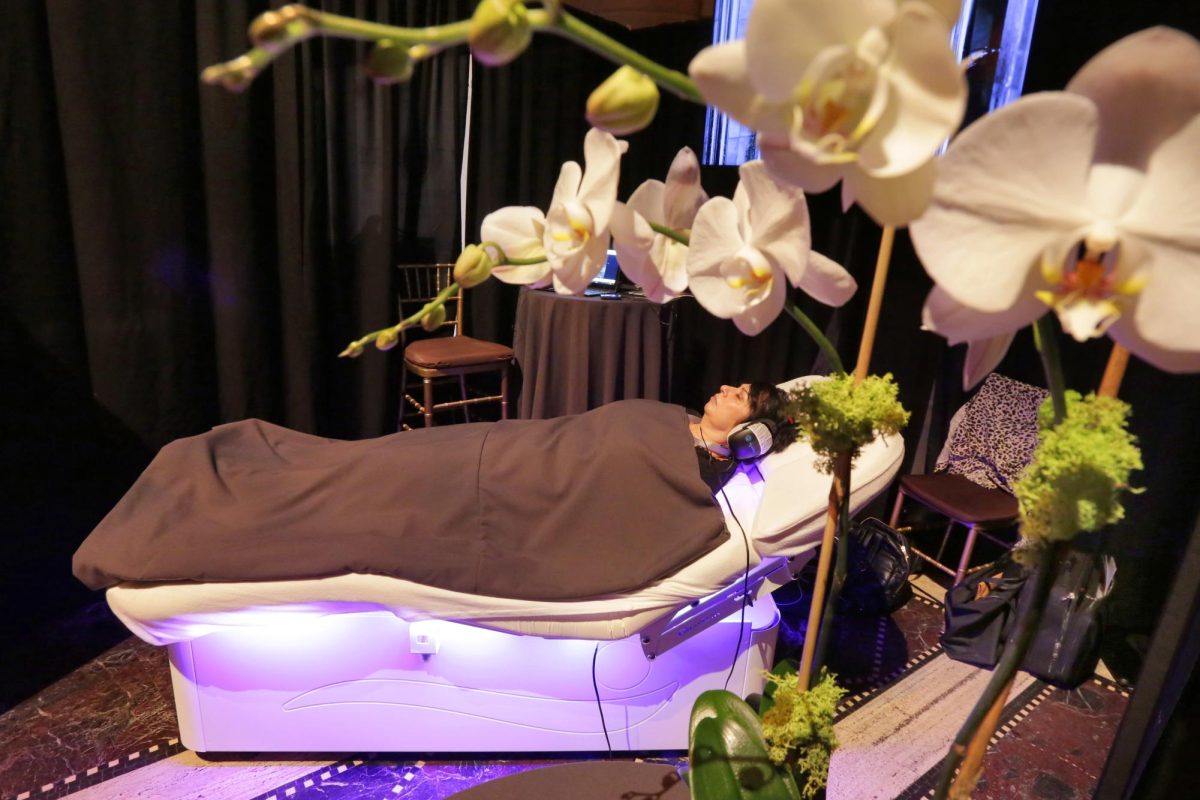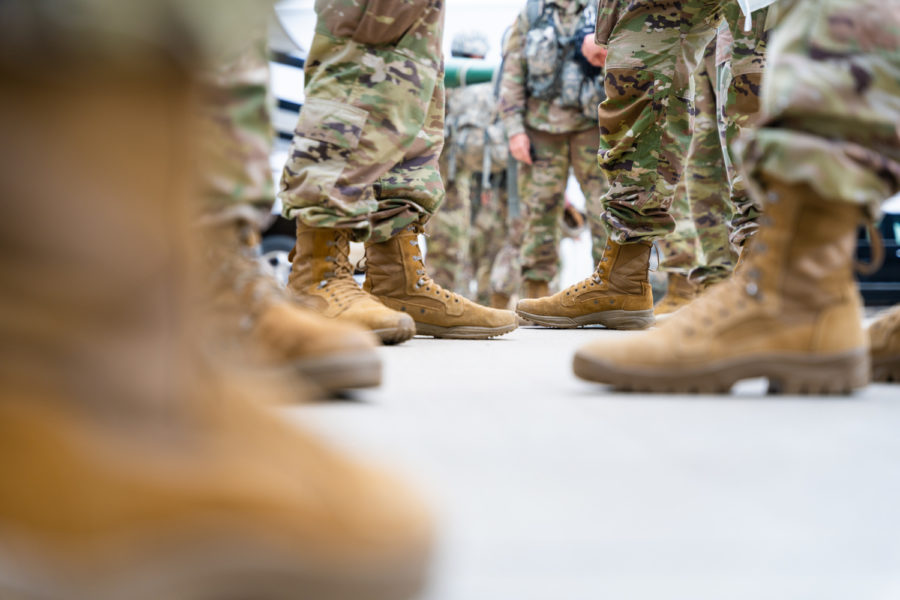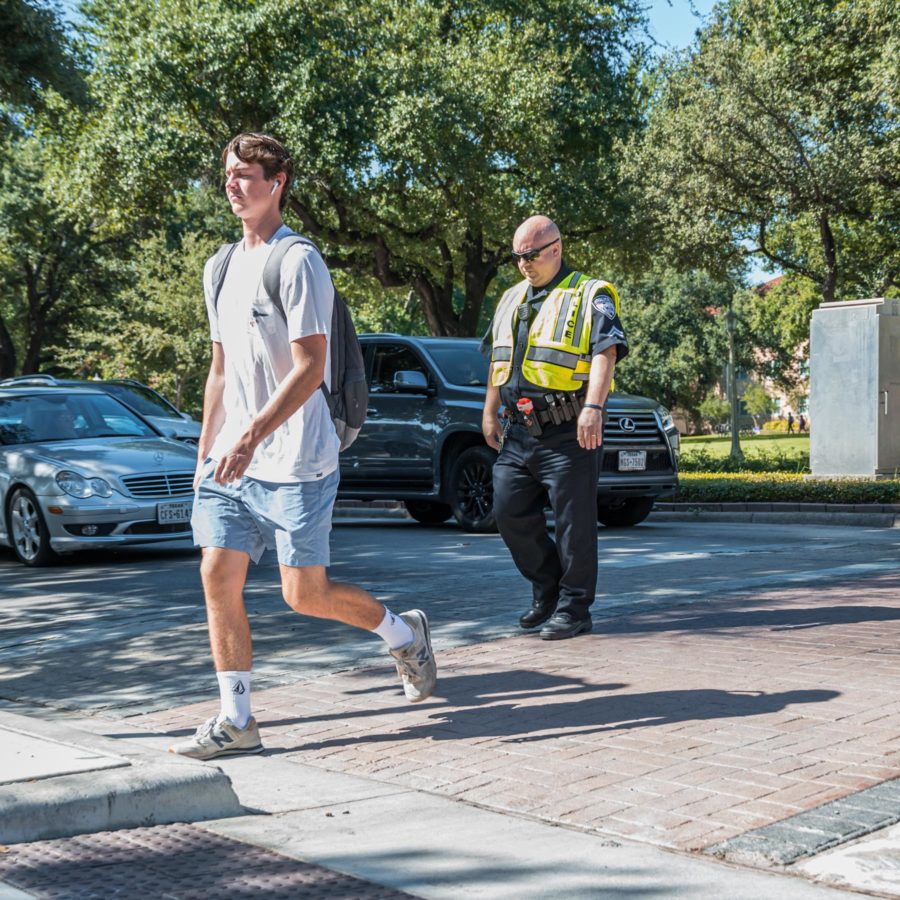Some of the most vocal people at last week’s campus carry debate were veterans.
They spoke about being trusted to protect the U.S. abroad and questioned why they shouldn’t have the same right at TCU.

Their questions and concerns are part of the campus wide discussion over the next several weeks that will help university officials decide how TCU will comply with a state law that allows people with concealed handgun permits to carry their weapons on college campuses, both public and private.
The law, which takes effect Aug. 1, 2016, does allow private universities and institutions to opt-out.
Open forums are also scheduled for noon, Sept. 23 in Smith 104B and noon, Sept. 29 in the Beck-Geren Conference Room in the Brown-Lupton University Union.
The chancellor is expected to make a recommendation to the Board of Trustees, who are expected to vote on the matter at their November board meeting.
Some veterans say they want campus carry but suggest some limits.
Paige Rodriguez, a senior general studies major, spent four years in the Navy as an E5 Interior Communications Electrician. As part of her job, Rodriguez performed maintenance on alarm systems, interior communications and the ship’s navigational systems.
She supports campus carry, but she thinks it shouldn’t be fully implemented at the start.
“I think we should allow the professors and staff to carry before the students can,” Rodriguez said. “I think it’s a great thing but it needs to be something that is eased into.”
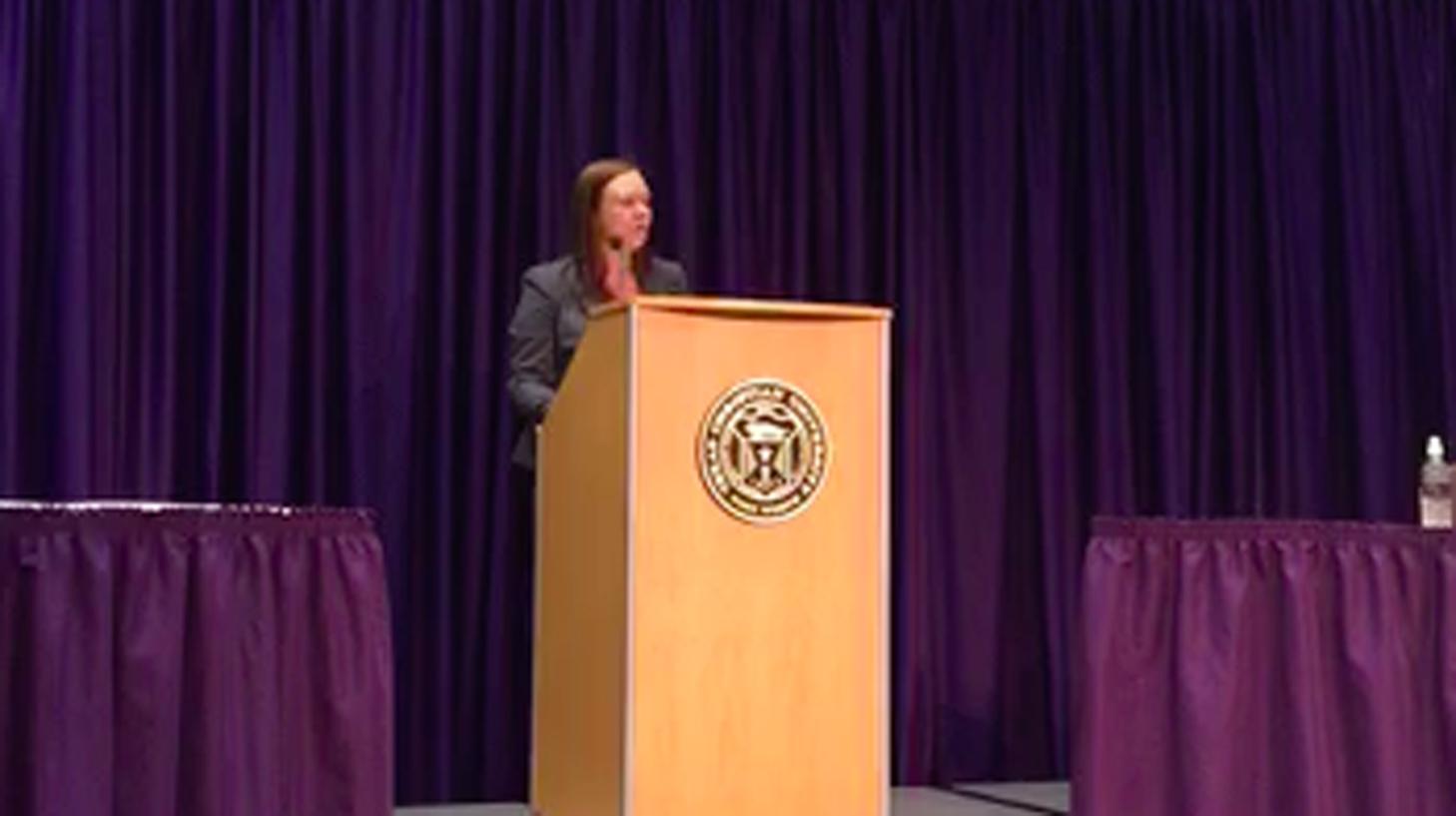
Nolan Bagwell, a junior marketing major, was an artillery specialist with a focus in fire direction control. Bagwell was active for one year in Grand Prairie, Texas, before entering the reserves. He’s been in the reserves for the past two years.
Bagwell said he would recommend an informational session for those who wish to carry on campus.
“TCU should have its own program to be able to carry in the classroom,” Bagwell said. “They should say, ‘You need to come to this info session and fill out this paperwork in order to carry on campus.’”
William Howe, a graduate communications major, spent almost three years as a combat medic for the Army and was deployed to Iraq. He said he is for campus carry, but also wanted gun-free zones.
Howe said, “I think that the law should be adopted and that we should opt-in, but the law also provides for gun-free zones. We can opt-in but still have parts of campus, such as the dorms, that are gun-free.”
If TCU decides to opt-out, some veterans said they will feel campus administration isn’t trusting the capabilities of veterans and their military background.
Bagwell said, “I feel like it’s a sign of respect from the administration when they allow us to carry because they’ll be respecting our capabilities and rights.”
Rodriguez said she trusts all the veterans on campus because they have earned rights to bear arms.
“I can’t think of any of the veterans on TCU’s campus that I wouldn’t trust,” Rodriguez said. “If anything, I would trust them more to keep people safe.”
Howe said the thing that’s bothering veterans is the attitude presented to them from other people.
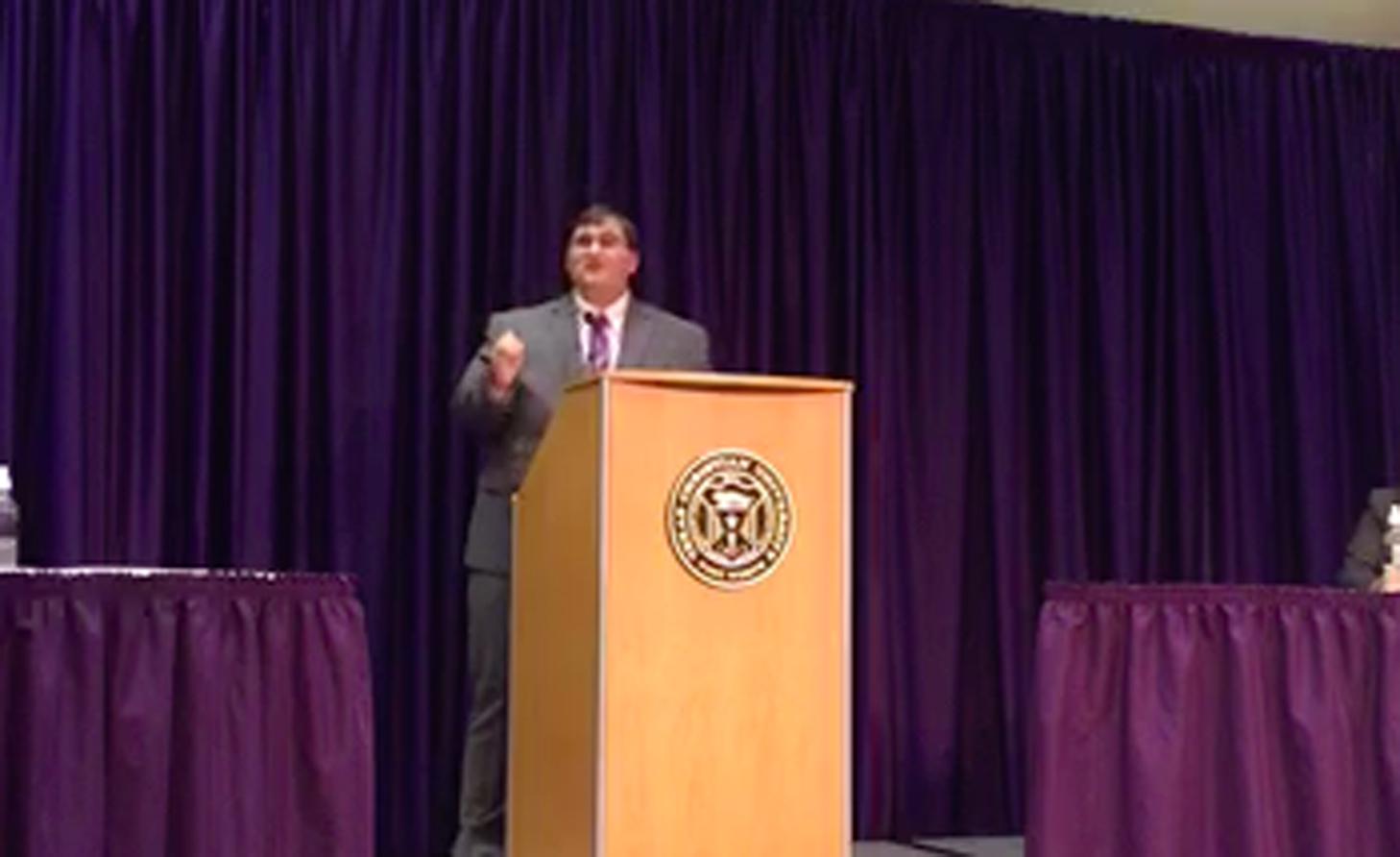
“I think that’s what stings the veterans more than anything – the nonchalant way that people are treating it,” Howe said.
Ryan Hille is a senior criminal justice major who served in the Navy in Sasebo, Japan, for four years as a gas turbine systems technician. Hille’s job consisted of maintaining and repairing the gas turbine engines on the ship.
Hille said CHL holders could act fast in times of crises.
“An individual with correct training can potentially act as a first responder to a situation where waiting for law enforcement could take a few minutes,” Hille said.
Shaun Martinez, a senior political science major who served in the Marines for almost five years, agreed.
“Campus carry can be a very effective preventative and responsive form of safety and defense,” Martinez said.
Martinez said he expects veterans to help out with groups such as a campus carry club to help create the expectations of carrying a concealed weapon responsibly.
Kevin Queppet Jr., a junior kinesiology major, was an ordnanceman who served in the Marines for four years which included tours to both Iraq and Afghanistan. An ordnanceman handles ammunition.
Queppet warned against uneducated opinions.
“It’s good to be cautious,” Queppet said, “but don’t let that cautiousness turn into a bias formed on uneducated opinions and fear.”
Some of the veterans emphasized the safety precaution that goes with opting-in to the campus carry law.
Hille said, “I feel that someone who successfully obtains a CHL and is of sound mind and responsible should be able to safely and effectively carry on campus.”
Howe, who lived through the November 2009 Fort Hood shooting, said his experience at Fort Hood has shaped his decision.
“I’ve seen firsthand what a person can do to hurt others,” Howe said. “He or she could slaughter.”
Bagwell compared the option of campus carry to an everyday object.
“It’s the same thing as wearing a seatbelt,” Bagwell said. “You don’t expect to get in a car wreck everyday but you wear your seatbelt because it’s a safety precaution you take because accidents happen.”

